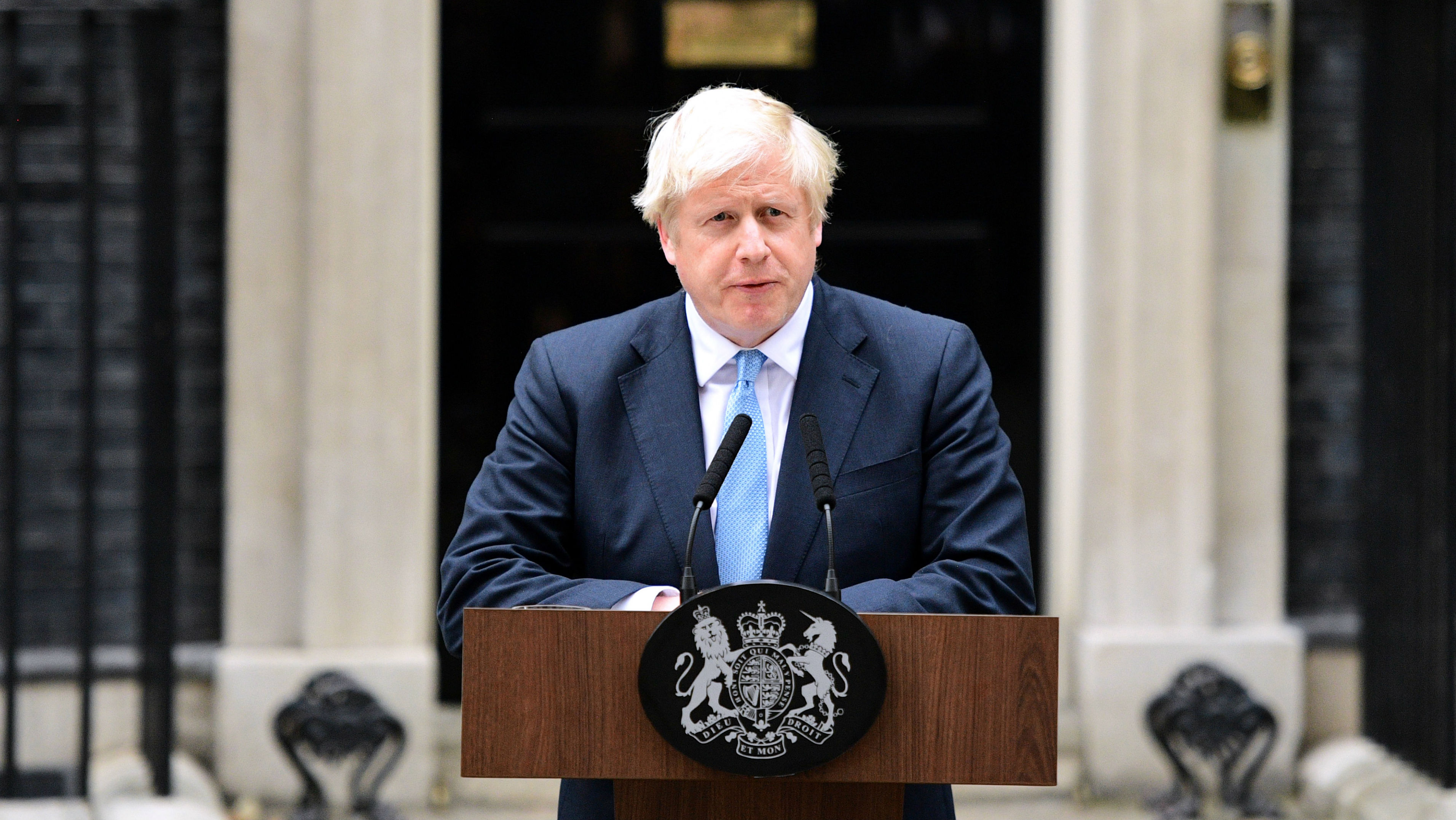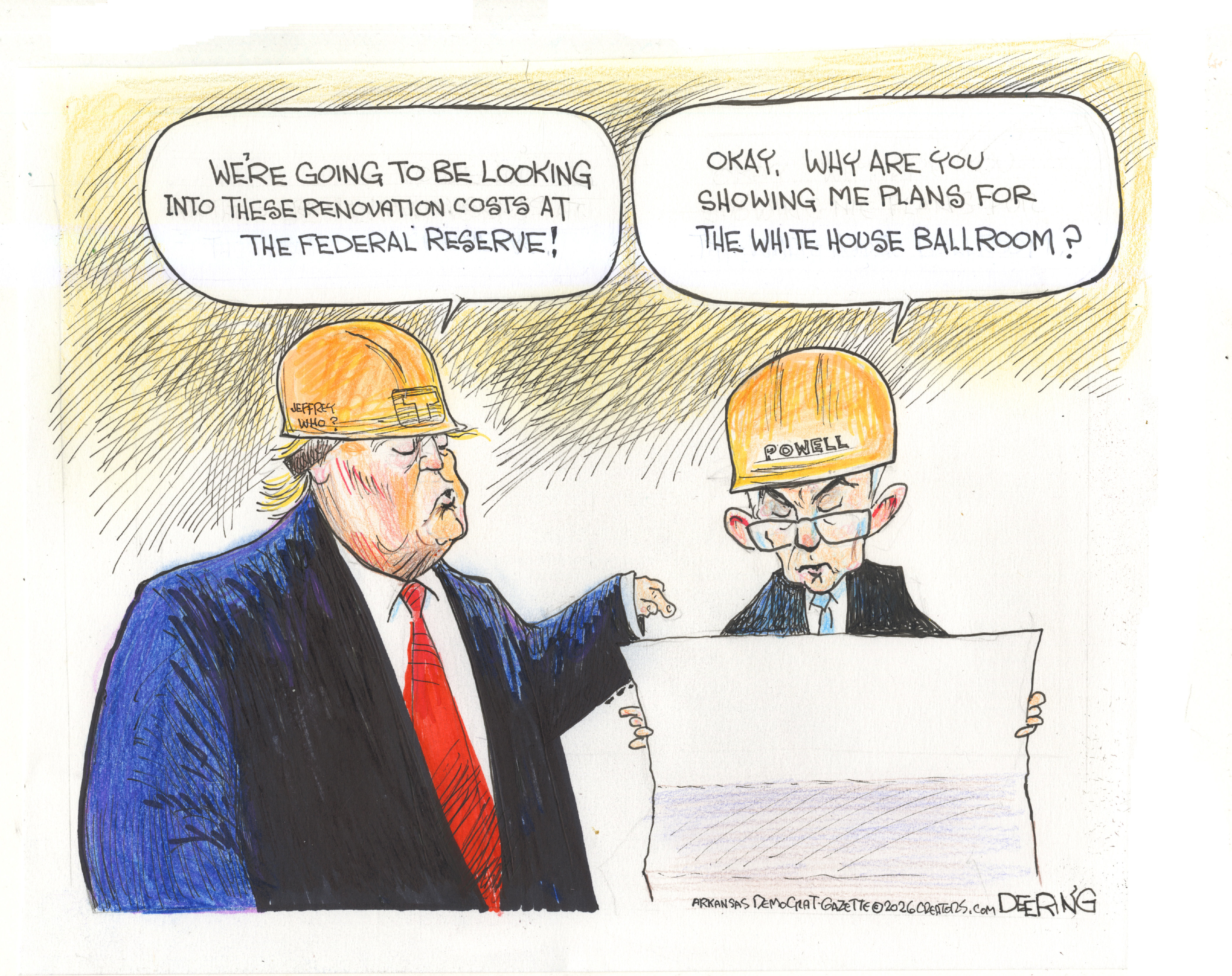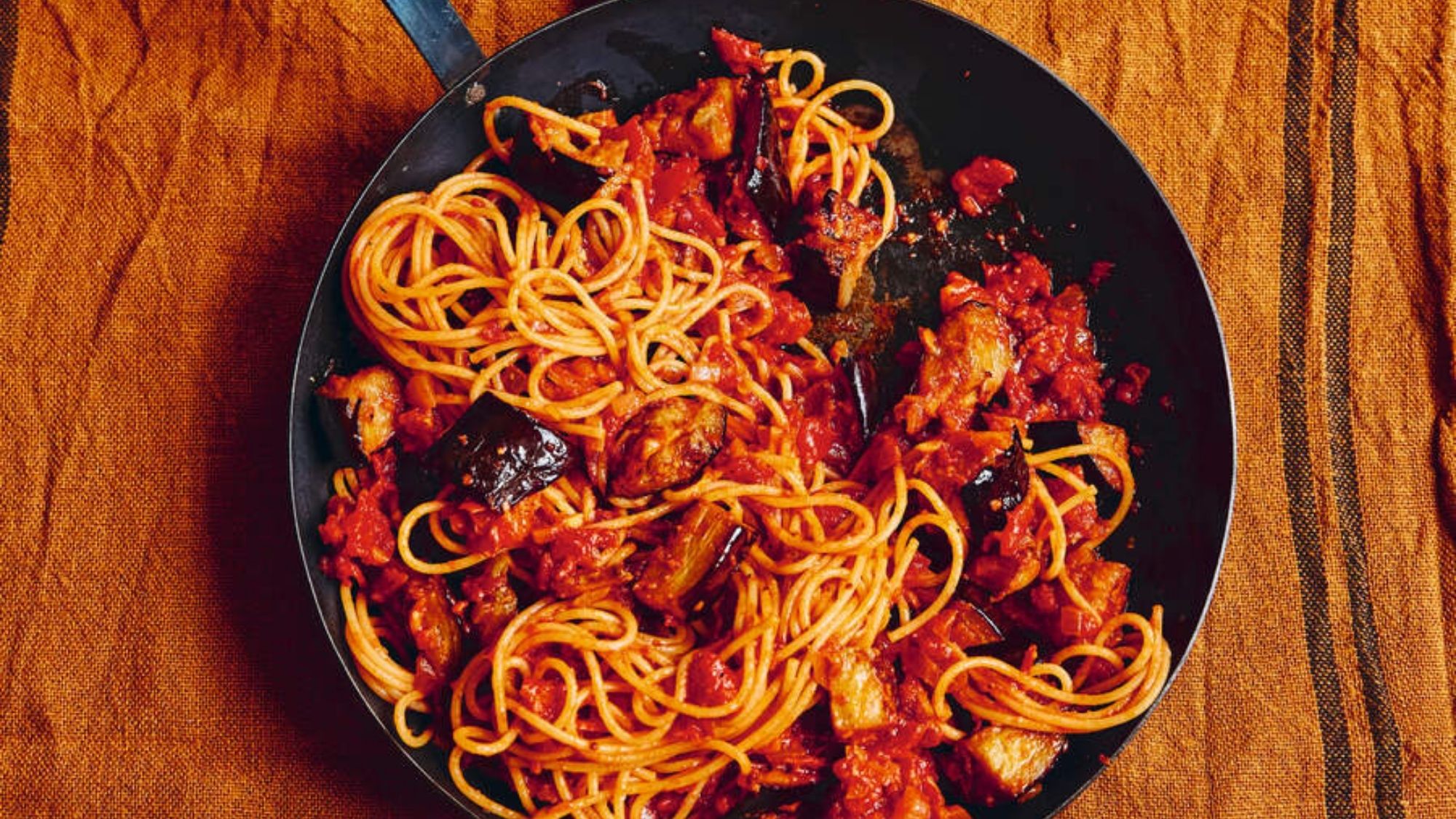Who will win the general election? Voting day poll results and odds
Findings of final poll of the campaign released as voters head to the ballot box

The final poll of the election shows the Conservative Party maintaining its lead over Labour and the other rival parties.
The Ipsos Mori/London Evening Standard voting intention data has the Tories out in front on 44% - which if accurate would see the Tories claiming their largest share of the vote since Margaret Thatcher’s first election victory in 1979.
Labour are in second place on 33%, with the Liberal Democrats third on 12%. The Green Party are predicted to take 3% of the vote, with the Brexit Party on 2%.
The Week
Escape your echo chamber. Get the facts behind the news, plus analysis from multiple perspectives.

Sign up for The Week's Free Newsletters
From our morning news briefing to a weekly Good News Newsletter, get the best of The Week delivered directly to your inbox.
From our morning news briefing to a weekly Good News Newsletter, get the best of The Week delivered directly to your inbox.
However, the poll also found that almost one in four voters could still change their mind. Or to put it another way, everything is still to play for in one of the most unpredictable elections in recent British history.
For all the latest results follow our election night live blog here
Who is going to win?
The Conservative lead the Labour Party in the final poll of the campaign, a result that tallies with the findings of YouGov’s last survey of the election. According to YouGov – which correctly called the result of the 2017 general election result – the party looks set to win a majority of 28.
A free daily email with the biggest news stories of the day – and the best features from TheWeek.com
However, analysis by Datapraxis suggests that, with such a large number of seats still in the balance, the result is by no means cut and dry. According to the polling company, we have “never seen as many undecided voters this late in the campaign” - meaning that while a Tory landslide is possible, so too is another hung parliament.
The Datapraxis analysis shows that as few as 150,000 voters across 80 to 90 marginal seats will decide the result.
Bookmakers have the Conservatives as odds-on favourites at a best price of 1/25 to win the most seats and 4/11 to take an overall majority. Labour is at 14/1 to win the most seats and 25/1 for a majority.
–––––––––––––––––––––––––––––––For a round-up of the most important stories from around the world - and a concise, refreshing and balanced take on the week’s news agenda - try The Week magazine. Start your trial subscription today –––––––––––––––––––––––––––––––
Latest voting intention polls
| Pollster | Con | Lab | LD | Grn | BXP | Con/La gap | Fieldwork |
| YouGov (MRP) | 43% | 34% | 12% | 3% | 3% | 9% | 4-10/12 |
| YouGov | 43% | 33% | 13% | 3% | 3% | 10% | 5-6/12 |
| Opinium | 45% | 33% | 12% | 2% | 2% | 12% | 10-11/12 |
| BMG | 41% | 32% | 14% | 4% | 4% | 9% | 4-6/12 |
| ComRes | 41% | 33% | 12% | 2% | 4% | 8% | 4-5/12 |
| Panelbase | 43% | 34% | 13% | 2% | 3% | 9% | 4-6/12 |
| Survation (phone) | 45% | 31% | 11% | 2% | 4% | 14% | 5-7/12 |
| ICM | 42% | 35% | 13% | 2% | 3% | 7% | 29-11/12 |
| Kantar | 44% | 32% | 15% | 3% | 2% | 12% | 28/11-2/12 |
| Ipsos-MORI | 44% | 33% | 12% | 3% | 2% | 11% | 9-11/12 |
| Deltapoll | 44% | 33% | 11% | 2% | 3% | 11% | 5-7/12 |
And how would that translate into seats?
Under Britain’s first-past-the-post electoral system, national polling results tell only half the story. This is because a party could have strong support concentrated in one area, meaning that the number of votes it wins there does not translate into more seats in parliament.
A party whose support is concentrated in certain areas will pick up far more seats than a party with the same number of votes spread evenly around the country.
For example, the Liberal Democrats won almost 2.4 million votes in 2017, but won just 12 seats because their voters were spread across the UK. The Scottish National Party won just over 977,000 votes, but won 35 seats because its vote is focused in Scotland.
Some polling companies attempt to turn their national polling figures into seats:
Electoral Calculus models polling across individual constituencies.
| Row 0 - Cell 0 | Con | Lab | Lib Dem | BXP | Green | SNP | Other* |
| Vote | 43.4% | 34.3% | 12.1% | 3.1% | 2.3% | 3.5% | 1.3% |
| Seats | 348 | 227 | 13 | 0 | 1 | 41 | 20 |
* Plaid Cymru, Democratic Unionist Party, Sinn Fein, Alliance Party of Northern Ireland
Elections Etc combines polling, betting markets and so-called “citizens forecasts”.
| Row 0 - Cell 0 | Con | Lab | Lib Dem | BXP | Green | SNP | Other* |
| Vote | 42.4% | 30.5% | 14.8% | 3.7% | 3% | 3.5% | N/A |
| Seats | 353 | 209 | 23 | 0 | 1 | 44 | 20 |
YouGov has produced its final poll of the election, its MRP model using data up to 10 December. It also generates individual constituency polling, however it does not provide voting intention figures for Northern Ireland.
| Row 0 - Cell 0 | Con | Lab | Lib Dem | BXP | Green | SNP | Other** |
| Vote | 43% | 34% | 12% | 3% | 3% | 3% | 2% |
| Seats | 339 | 231 | 15 | 0 | 1 | 41 | 5 |
**Does not include data for 18 seats in Northern Ireland
How are the parties trying to win our vote?
Here are The Week’s guides to the main parties’ policies:
The Tory manifestoThe Labour manifestoThe Liberal Democrat manifestoThe Brexit Party manifestoThe Green Party manifestoThe general election manifestos at a glance
What happens if there’s another hung parliament?
In the event of a hung parliament, the incumbent has the first opportunity to put together a viable government. Next in line is the party with the largest number of seats.
The Conservatives are unlikely to agree a pact with the DUP again, because the DUP has said Johnson’s EU withdrawal deal is unacceptable, while the smaller opposition parties have hinted that they would be open to talking to Labour about forming an anti-Conservative government.
What will a Conservative majority mean for Brexit?
The polls suggest that the Tories are on course to win an overall majority, a development that will mean Johnson is in a strong position to rush his Brexit deal back into the House of Commons.
A re-elected Tory government would begin putting Johnson’s EU withdrawal agreement through parliament before Christmas in order to honour the 31 January Brexit deadline.
The PM would then seek to negotiate a new trade deal with the EU in 2020 and would rule out extending the Brexit transition period beyond the end of 2020. This means that if negotiations are not complete by December 2020, the threat of Britain leaving without a deal would once again rear its head.
Can Labour form the next government?
It could, but it would require the polls to be seriously wrong again – and some serious negotiations in the days following the election.
It looks almost impossible for Labour to win a majority, so any Labour-fronted government would have to be a coalition. Labour leader Jeremy Corbyn has all but ruled out a coalition with the Lib Dems, telling Metro that the party “happily signed up to austerity” when they entered government with the Tories in 2010.
While talks with the Lib Dems look like a non-starter, the SNP and Plaid Cymru have both hinted that they would be open to talking with Labour, though whether either of them would go into a formal coalition is not clear.
So what’s the most likely outcome?
At the moment, a Conservative majority appears to be the most likely outcome, with the Tories maintaining their lead on election day, according to the final polling results.
But as the Datapraxis analysis has shown, this final result will be decided by a number of marginal constituencies that are currently too close to call. Never before have there been so many undecided voters and the choices on offer to them have rarely been so stark.
According to the Ipsos Mori poll, 41% of Liberal Democrat supporters say they could still change their mind, most likely to back an anti-Brexit Labour candidate. And Labour supporters appear marginally more likely to change their mind than their Conservative-backing peers, by 25% to 17%.
Boris Johnson leads Jeremy Corbyn in terms of who voters believe would be the most capable prime minister, with 43% preferring the Conservative leader while 29% back his Labour rival.
In the event that the Tories do get their majority, expect the weeks before Christmas to be as frantic as the campaign, with Johnson rushing to re-table his withdrawal agreement in order to hit his 31 January departure deadline.
–––––––––––––––––––––––––––––––For a round-up of the most important stories from around the world - and a concise, refreshing and balanced take on the week’s news agenda - try The Week magazine. Start your trial subscription today –––––––––––––––––––––––––––––––
Joe Evans is the world news editor at TheWeek.co.uk. He joined the team in 2019 and held roles including deputy news editor and acting news editor before moving into his current position in early 2021. He is a regular panellist on The Week Unwrapped podcast, discussing politics and foreign affairs.
Before joining The Week, he worked as a freelance journalist covering the UK and Ireland for German newspapers and magazines. A series of features on Brexit and the Irish border got him nominated for the Hostwriter Prize in 2019. Prior to settling down in London, he lived and worked in Cambodia, where he ran communications for a non-governmental organisation and worked as a journalist covering Southeast Asia. He has a master’s degree in journalism from City, University of London, and before that studied English Literature at the University of Manchester.
-
 Political cartoons for January 17
Political cartoons for January 17Cartoons Saturday’s political cartoons include hard hats, compliance, and more
-
 Ultimate pasta alla Norma
Ultimate pasta alla NormaThe Week Recommends White miso and eggplant enrich the flavour of this classic pasta dish
-
 Death in Minneapolis: a shooting dividing the US
Death in Minneapolis: a shooting dividing the USIn the Spotlight Federal response to Renee Good’s shooting suggest priority is ‘vilifying Trump’s perceived enemies rather than informing the public’
-
 Three consequences from the Jenrick defection
Three consequences from the Jenrick defectionThe Explainer Both Kemi Badenoch and Nigel Farage may claim victory, but Jenrick’s move has ‘all-but ended the chances of any deal to unite the British right’
-
 The high street: Britain’s next political battleground?
The high street: Britain’s next political battleground?In the Spotlight Mass closure of shops and influx of organised crime are fuelling voter anger, and offer an opening for Reform UK
-
 Biggest political break-ups and make-ups of 2025
Biggest political break-ups and make-ups of 2025The Explainer From Trump and Musk to the UK and the EU, Christmas wouldn’t be Christmas without a round-up of the year’s relationship drama
-
 The MAGA civil war takes center stage at the Turning Point USA conference
The MAGA civil war takes center stage at the Turning Point USA conferenceIN THE SPOTLIGHT ‘Americafest 2025’ was a who’s who of right-wing heavyweights eager to settle scores and lay claim to the future of MAGA
-
 ‘The menu’s other highlights smack of the surreal’
‘The menu’s other highlights smack of the surreal’Instant Opinion Opinion, comment and editorials of the day
-
 Is a Reform-Tory pact becoming more likely?
Is a Reform-Tory pact becoming more likely?Today’s Big Question Nigel Farage’s party is ahead in the polls but still falls well short of a Commons majority, while Conservatives are still losing MPs to Reform
-
 The launch of Your Party: how it could work
The launch of Your Party: how it could workThe Explainer Despite landmark decisions made over the party’s makeup at their first conference, core frustrations are ‘likely to only intensify in the near-future’
-
 What does the fall in net migration mean for the UK?
What does the fall in net migration mean for the UK?Today’s Big Question With Labour and the Tories trying to ‘claim credit’ for lower figures, the ‘underlying picture is far less clear-cut’